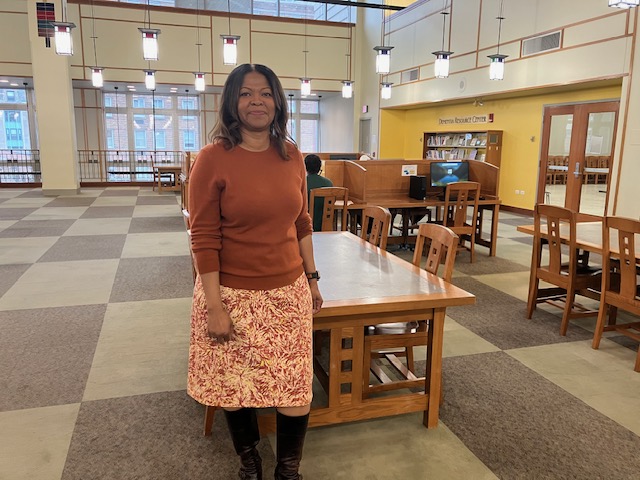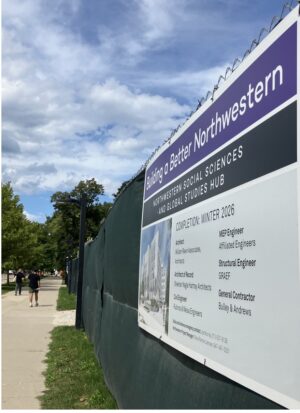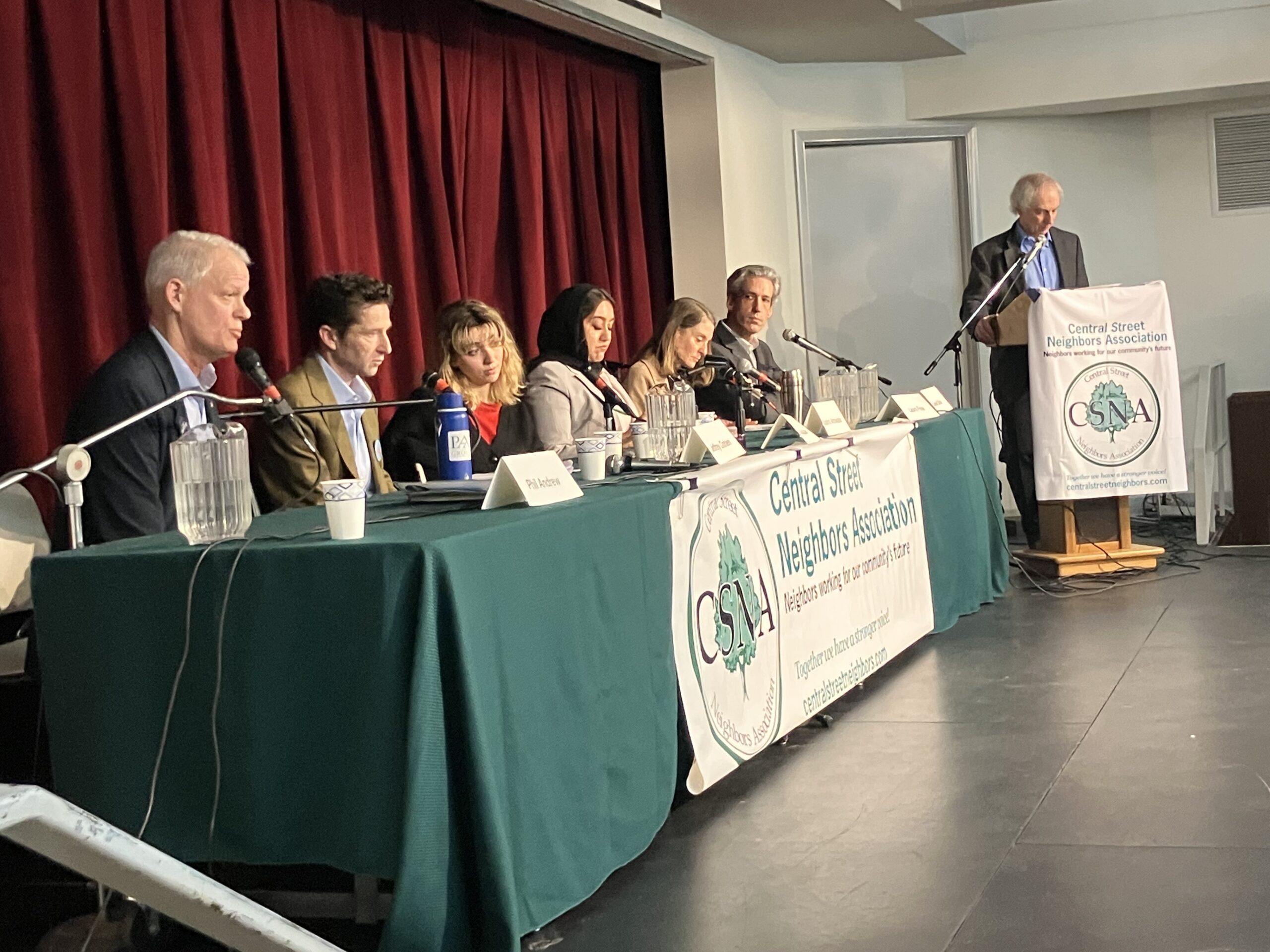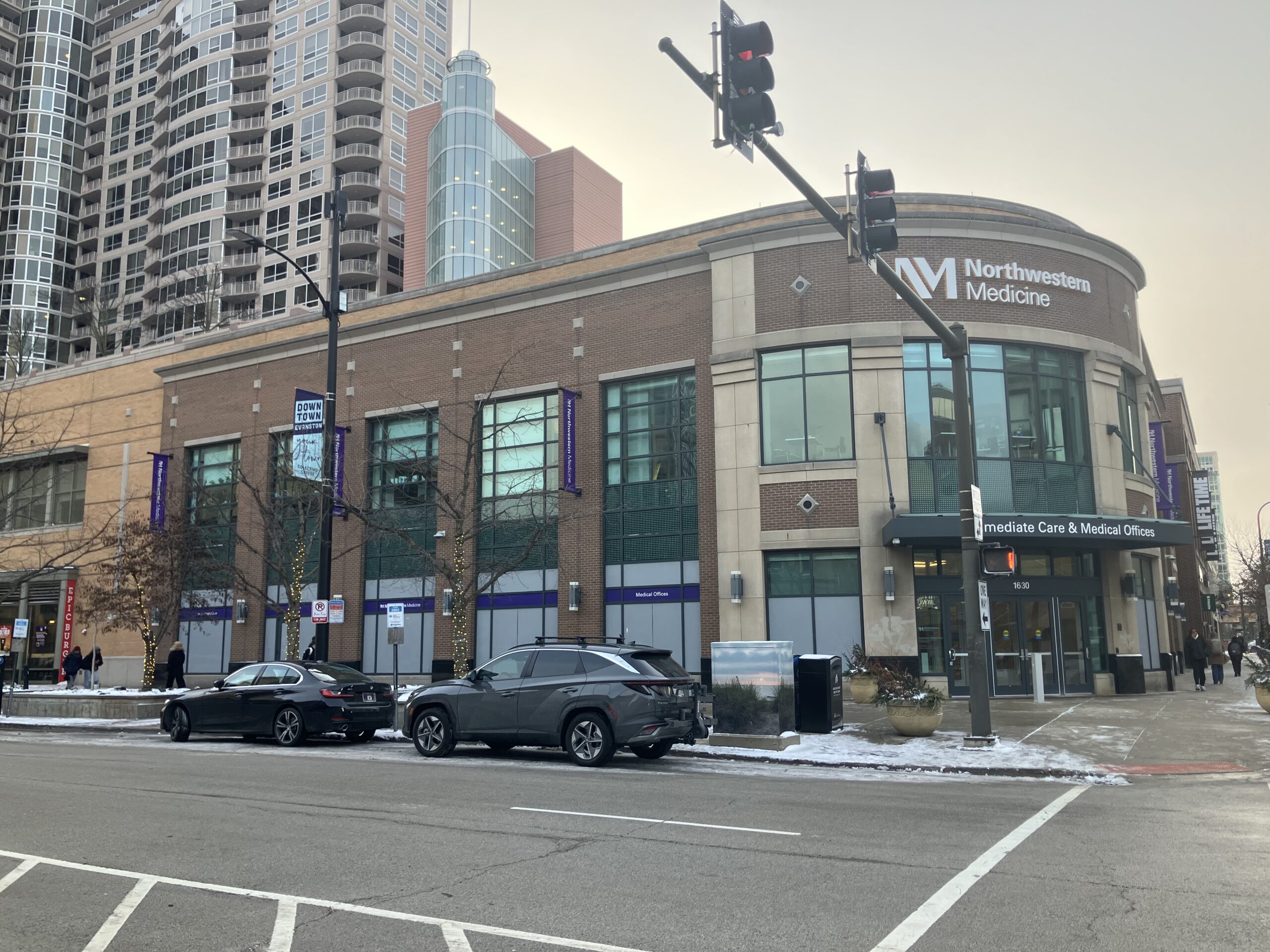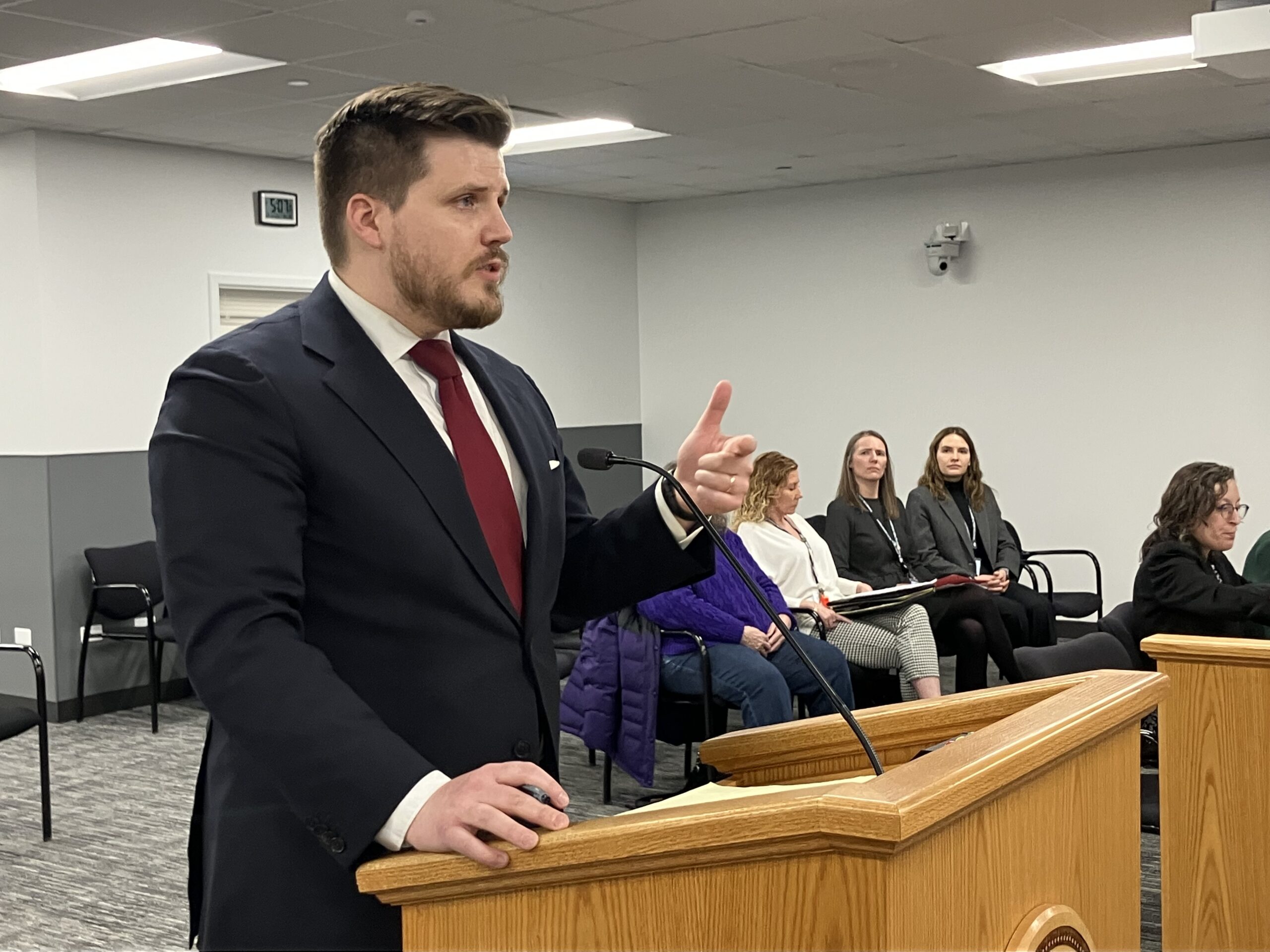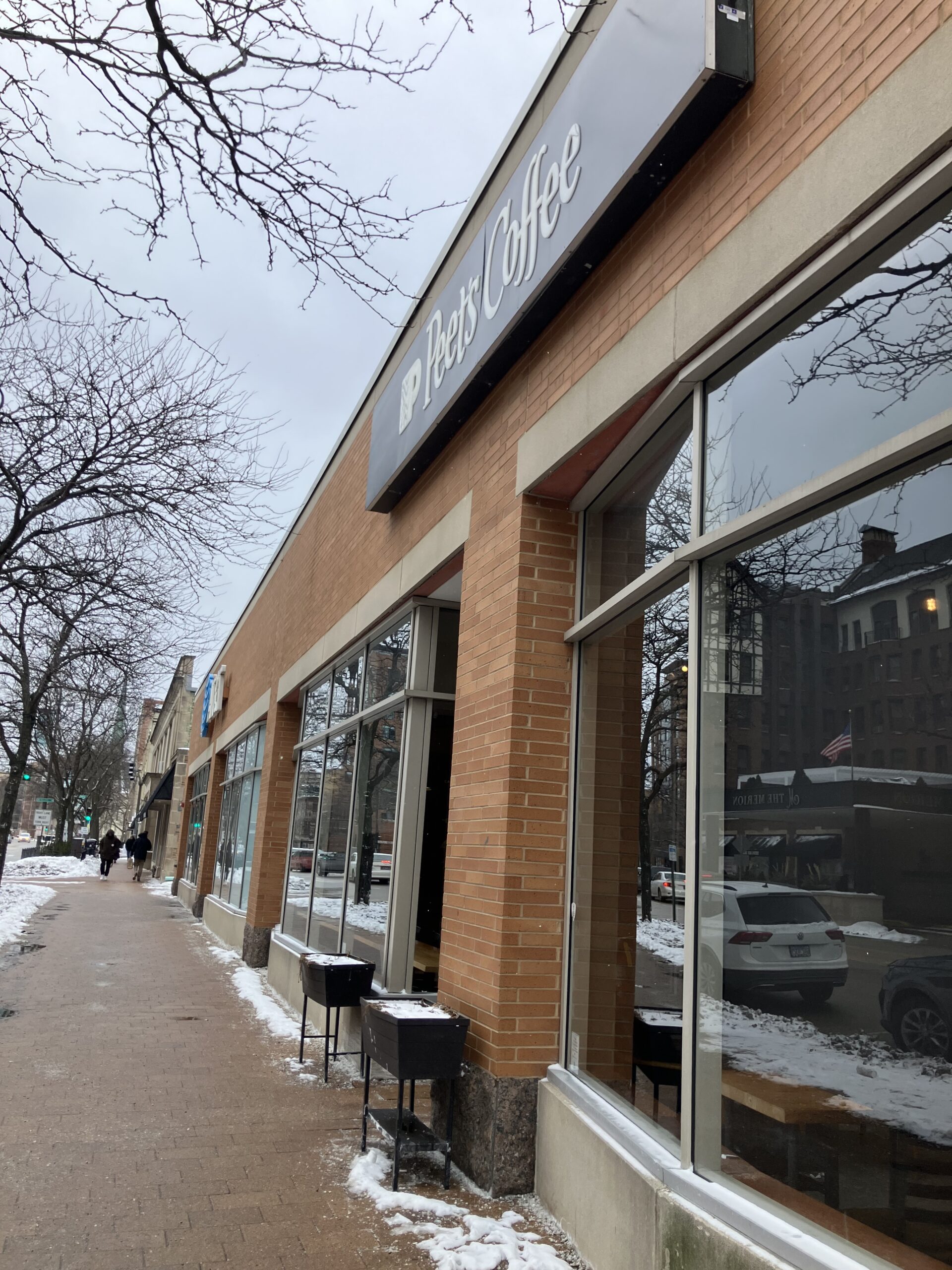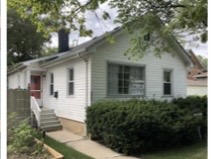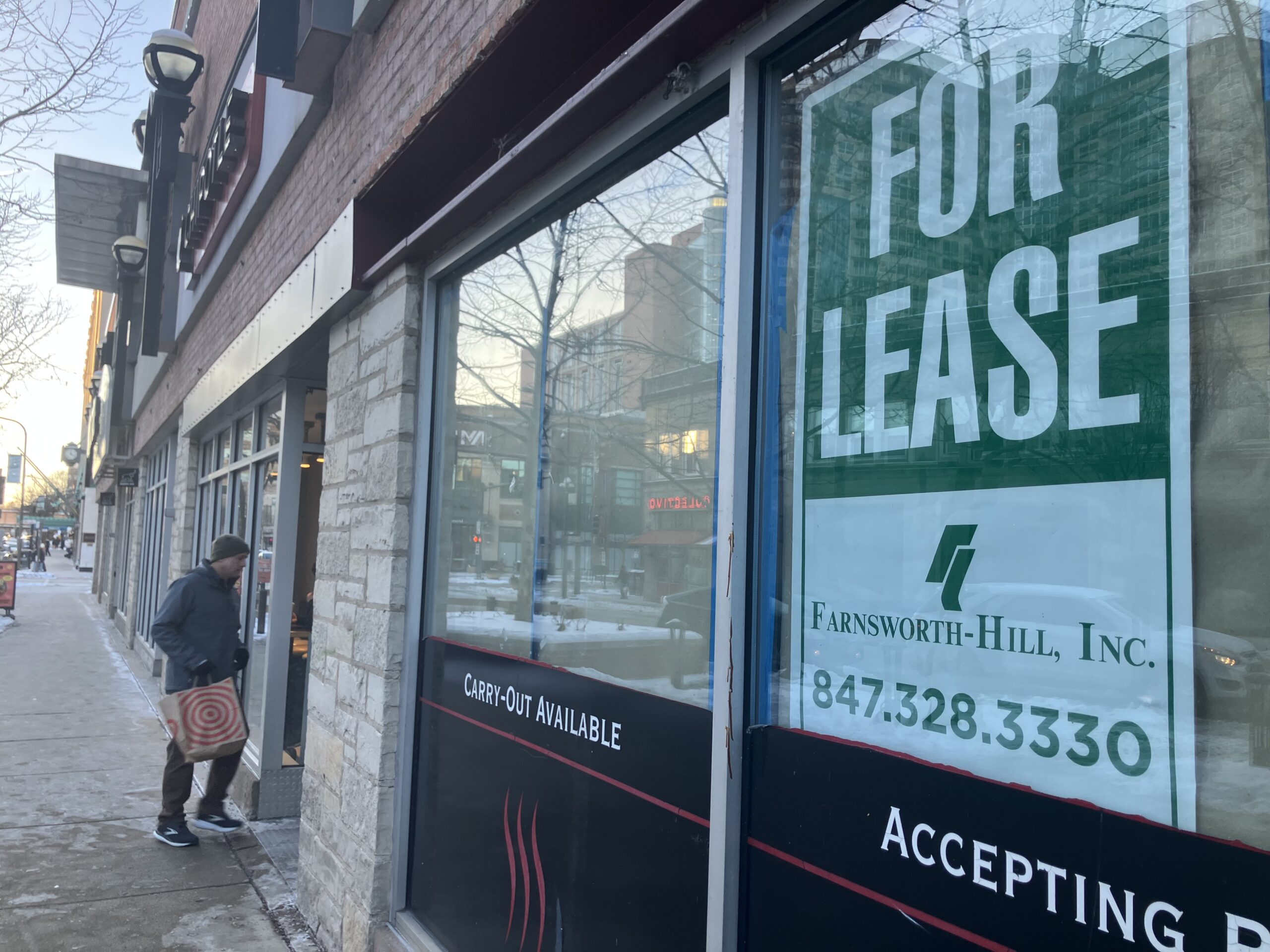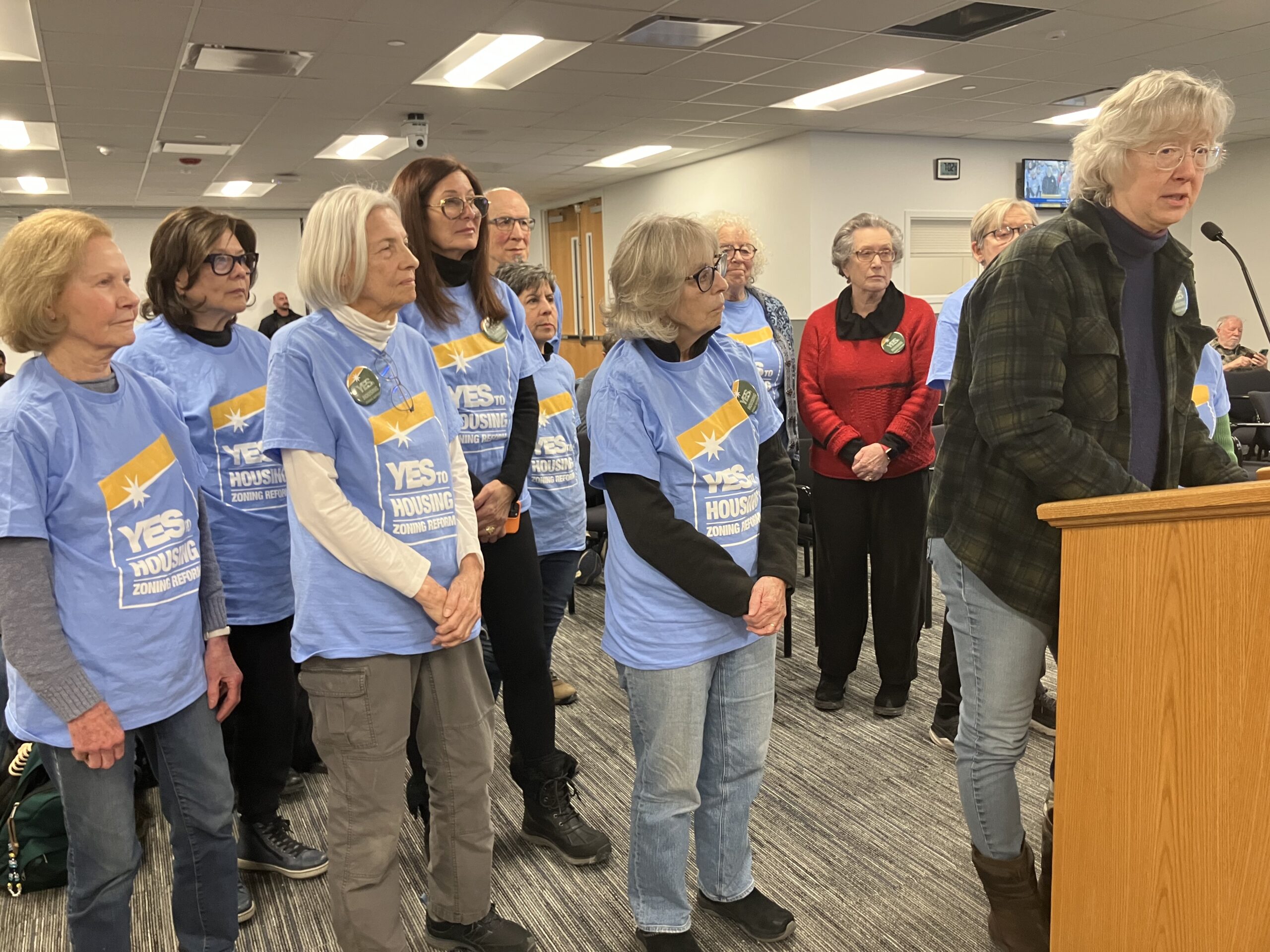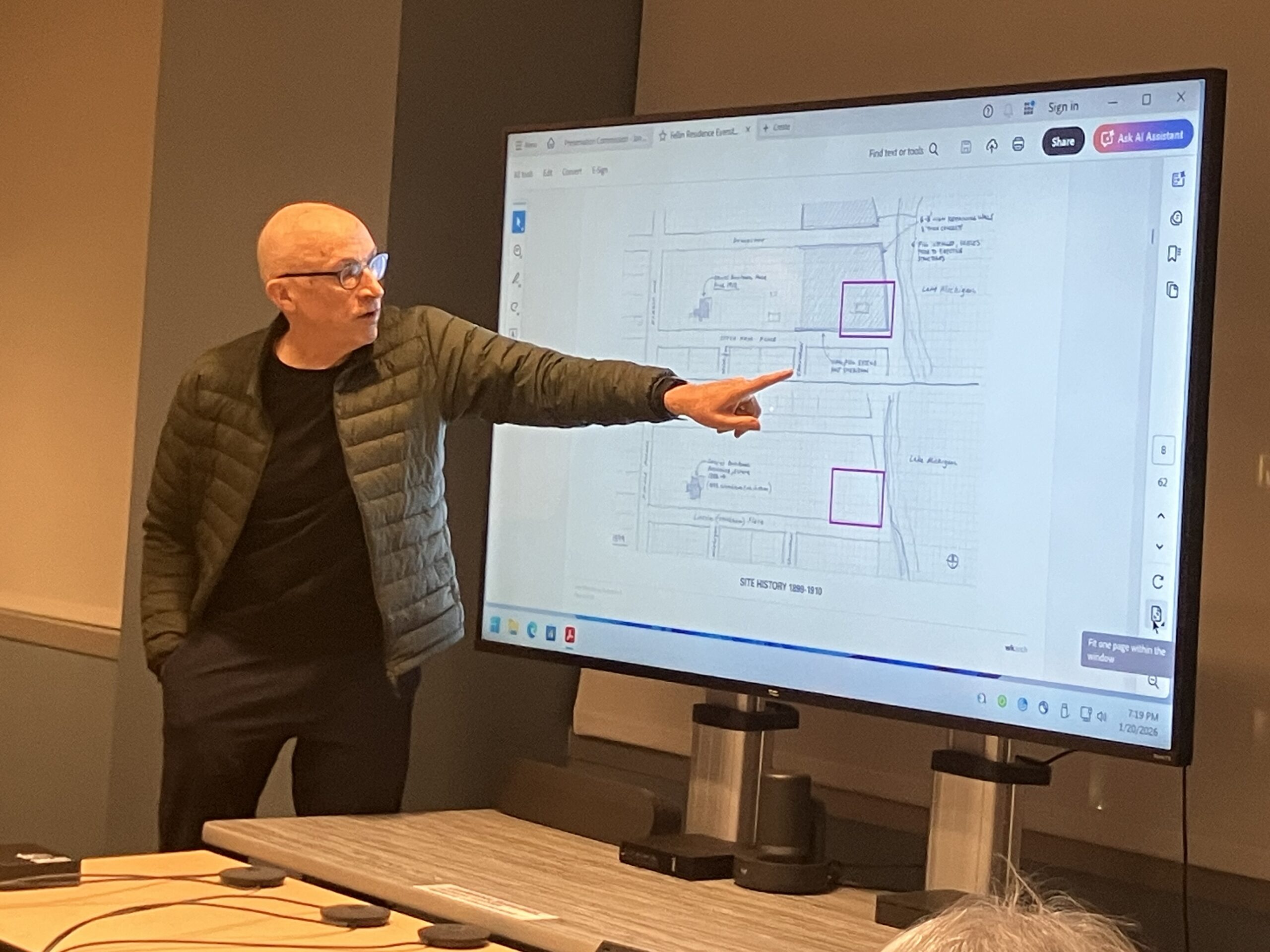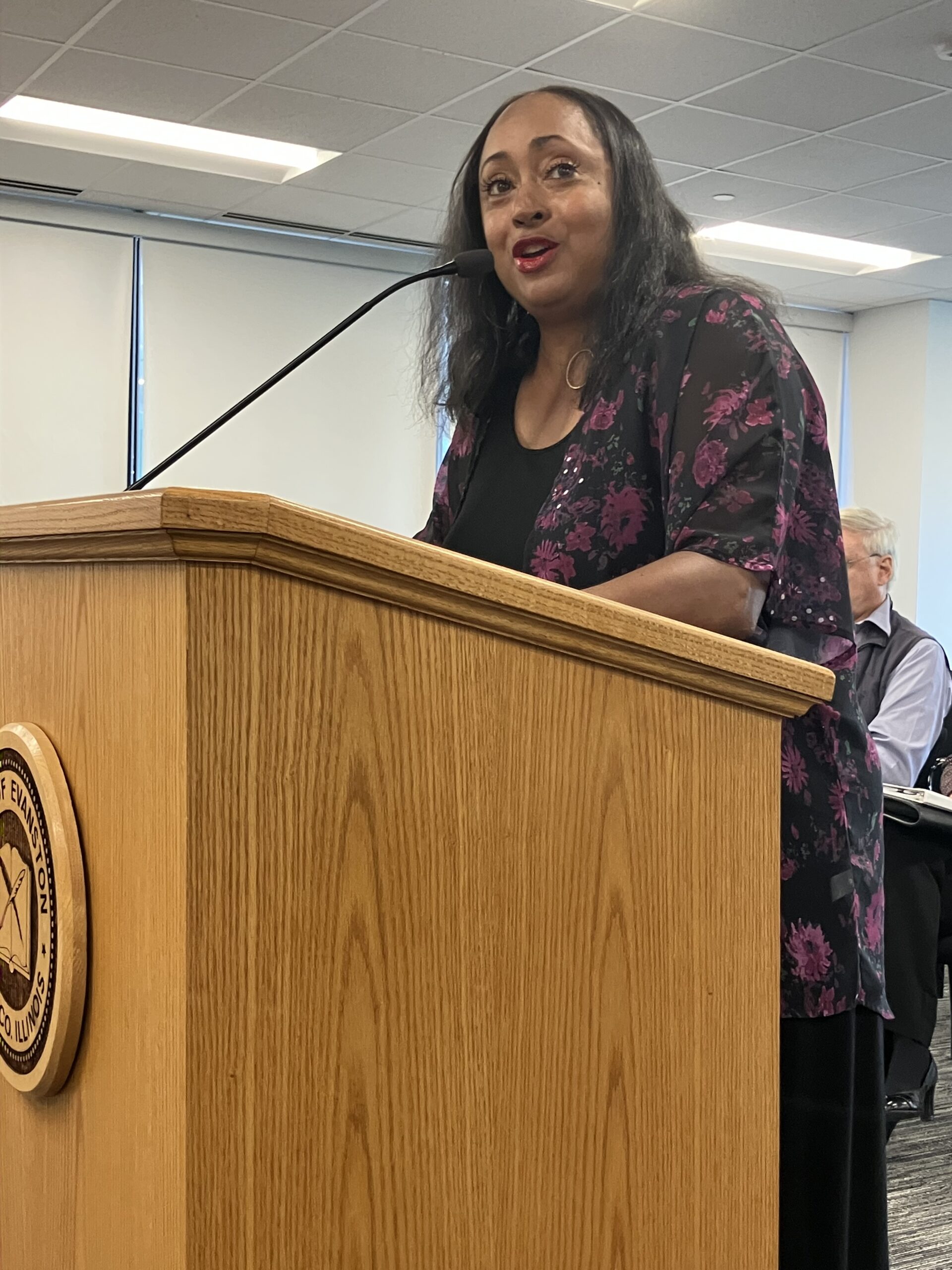By Bob Seidenberg
A proposal that seeks to address spikes in property taxes that longtime homeowners may receive is moving to the full City Council for review.
The “Circuit Breaker Program” could be a “lifeline for working families and seniors who are being priced out of our beautiful Evanston, out of their homes that they’ve poured (money) into for decades because of rising property taxes and rent,” Evanston resident Meleika Gardner told the Finance & Budget Committee Tuesday.
Committee members agreed that the council was the right place to hear the proposal, taking no formal position on it.
“We like the concept but we don’t know all the other needs out there and the other ideas out there,” said Shari Reiches, chairing the meeting. “This is really a council policy.”
Gardner, active in community engagement for over a decade, has been the prime mover bringing the program to officials’ notice. Committee member and Councilmember Clare Kelly (1st Ward) made the main referral to the committee for it to be considered.
Speaking during public comment at the meeting, Gardner said the Circuit Program “doesn’t ask for charity and it doesn’t burden other taxpayers — and I want to make that clear, it does not burden other taxpayers,” she stressed. “We’ve identified a funding source, meaning the city already has the ability to make this happen without taking a dime from anyone else’s pocket. Most importantly, this program stays between the city and the people, no third- party organizations handling the money, no middleman taking their cuts, and no politics muddying the waters,” she maintained.
A Circuit Breaker property relief act bill has been in front of the Illinois General Assembly since February, said James Mendez, director of policy for the Cook County Assessor’s Office, speaking to the committee through video hookup at Tuesday’s meeting. He was one of a handful of speakers who spoke in support.
Circuit Breaker bill
The bill provides that homeowners drawing less than $100,000 in annual income would be eligible for assistance if they see a 25%-plus spike in their property taxes since the previous assessment, he said.
Speaking during public comment at the meeting, Gardner said the Circuit Program “doesn’t ask for charity and it doesn’t burden other taxpayers — and I want to make that clear, it does not burden other taxpayers,” she stressed. “We’ve identified a funding source, meaning the city already has the ability to make this happen without taking a dime from anyone else’s pocket. Most importantly, this program stays between the city and the people, no third- party organizations handling the money, no middleman taking their cuts, and no politics muddying the waters,” she maintained.
A Circuit Breaker property relief act bill has been in front of the Illinois General Assembly since February, said James Mendez, director of policy for the Cook County Assessor’s Office, speaking to the committee through video hookup at Tuesday’s meeting. He was one of a handful of speakers who spoke in support.
Circuit Breaker bill
The bill provides that homeowners drawing less than $100,000 in annual income would be eligible for assistance if they see a 25%-plus spike in their property taxes since the previous assessment, he said.
“Currently, 29 different states have a Circuit Breaker program, and then also Washington, D.C., has their own,” Mendez said. “So this is largely a state-run program. Every now and then you’ll see a county, a more localized level of government, implement a program that’s not necessarily permanent, but it’s more temporary.”
He said Cook County is one of those. The county will soon take applications for the Cook County Homeowners Relief Fund that is run through the Cook County Bureau of Economic Development, he said. That office has some $15 million that would be dedicated to this sort of homeowners’ relief, he said. “And if you’ve seen 50% spikes according to their website, and you are at or below 100% of the area median income, you would become eligible for that.”
Councilmember Jonathan Nieuwsma (4th Ward) asked Mendez what benefits would be for someone who qualifies.
Mendez said an eligible homeowner would see savings on the second installment of their tax bill. In the proposal before the state, “we found that if we were to get the $200 million in state appropriation that for those who saw a 25-plus percent increase in their tax bill, it would shave off about half of the increase.”
Many are struggling: Kelly
Leading off committee discussion, Councilmember Kelly said, “I think all know that in Evanston, we have many residents who are struggling and move out of Evanston because of the high cost of living, including high taxes.
“This is an old program — most of the states actually have this program to protect residents so that they can continue to live and age in place,” she said. “And as we heard, they’re working on one at the state level. It probably won’t be implemented for three or four years.”
Rather than a property tax or some other budget increase, the city could support a Circuit Breaker Program with existing revenue such as the Good Neighbor Fund with Northwestern University, she said. In 2023, the university upped its contribution under the fund to $3 million as part of a community benefits agreement with the city in the Ryan Field rebuild. Of that total, $1 million is earmarked for the city’s affordable housing programs.
Other potential funding sources Kelly named include a percentage of sales from Ryan Field events; increment property taxes from new developments of seven or more units; a determined percentage of real estate transfer tax from homes selling for $1 million plus.
She said debate about the income threshold to participate could wait until later, “but I would say we wouldn’t rely on spikes, because we have a lot of folks here who are struggling to stay in their homes without a spike.”
“What I think we all know is we desperately need this program in Evanston,” she told committee members. “We care a lot about creating a lot of affordable housing units, but we’re not really instituting any program to protect our very residents who live here — long-term residents. We’re having them move out because they can’t continue to live here.”
An issue of funding priorities: Livingston
Other committee members didn’t take issue with that but did raise questions on whether the program was actually revenue-neutral, questioning Hitesh Desai, the city’s financial officer and treasurer, on that point.
Nieuwsma observed, “It sounds like if we do this, that it would be offset by money that would have been spent on other affordable housing programs.”
Committee member David Livingston said the decision could come to how they [councilmembers] want to allocate some of the affordable housing money.”
“It’s not a budget issue,” he said. “It’s a priorities issue.”
issue.”
“I like the idea and how can anybody not like the idea,” said Nieuwsma, of “helping people who are burdened by excessive property tax bills, to deal with that additional expense.”
Details ‘unclear’
At the same time, Nieuwsma said, “it’s completely unclear to me what this program would look like. We don’t have any of the very important details developed: Who exactly would be eligible? Is it age-based? Is it length-of- residency based?”
Kelly pointed out that the initiative would be tested initially through a pilot program. She said a 20-year residency in the city is being looked at.
“Our demographics are changing because people are forced out, because of the high taxes in large part, and to only allocate affordable housing to new units for people to come into our city is, I’m sorry, but there’s a certain lack of compassion.”
She asked the committee to recommend that the city create a pilot Circuit Breaker Program, forwarding it to the City Council to allocate the amount of Good Neighbor funds to support it. Reiches said she wasn’t sure that the committee was ready to forward the program. “Is this something we move forward, without all the other needs that we may need for the [Good Neighbor] fund?” she said, looking for direction from the other councilmembers on the committee.
Committee and Councilmember Tom Suffredin (6th Ward) suggested that is what the budget process at the council is about, “picking out how to match funding sources and programming and prioritize.”
The committee took no vote on the issue.
